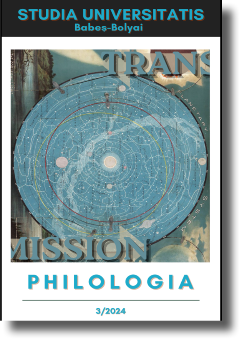THE CONCEPT OF THE THREE ORDERS OF SOCIETY IN LATE OLD ENGLISH PROSE
THE CONCEPT OF THE THREE ORDERS OF SOCIETY IN LATE OLD ENGLISH PROSE
Author(s): Andrei CrișanSubject(s): British Literature
Published by: Studia Universitatis Babes-Bolyai
Keywords: Wulfstan of York; Institutes of Polity; Ælfric; secular law; ecclesiastical law; tripartite society; laboratories; oratores; bellatores.
Summary/Abstract: The Concept of the Three Orders of Society in Late Old English Prose. Between the years 991 and 1012, the English suffered one of the worst Viking onslaughts in history. The relentless invasions coupled with an ineffective administration which was crumbling from within almost brought England to its knees. There was dire need for reformation. The first step in this process was a clear assessment of the situation. To this end, Archbishop Wulfstan of York and Abbot Ælfric of Eynsham rediscover and use the concept of the tripartite society to show the desperate need for all three social orders of England (laboratores, oratores, bellatores) to unite in support of the office of kingship, lest everything be lost. The present paper aims to present the evolution of the concept of a tripartite society in Anglo-Saxon England from its (pseudo)Alfredian origins to its integration into the political tracts, law codes, sermons and homilies of late Anglo-Saxon England.
Journal: Studia Universitatis Babes-Bolyai - Philologia
- Issue Year: 69/2024
- Issue No: 3
- Page Range: 189-206
- Page Count: 18
- Language: English

